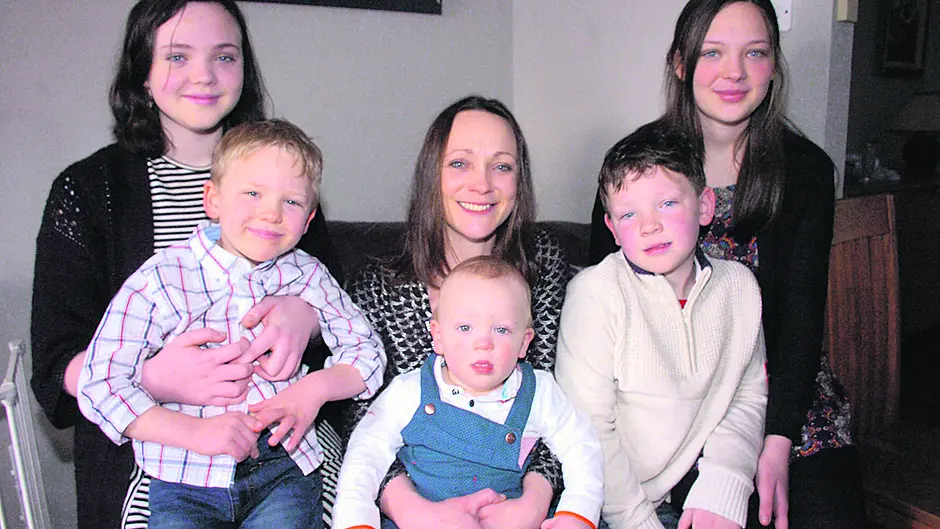By Caragh Bell
LIKE the famous Monty Python sketch about the Spanish Inquisition, no one expected Covid-19. It was a Chinese thing; too far away to trouble us. We didn’t fix our attention on coronavirus until it had pervaded our very existence, leaving devastation in its wake. It has shut down life as we know it and has created a new reality – one where everything we took for granted has suddenly been taken away.
I teach English and French in an all-girls secondary school. After the government directive, our school closed in a matter of hours and I was forced to improve my basic Google Classroom skills dramatically overnight. Sure, I dipped into this online virtual classroom for assignments in my pre-coronavirus life, but never to actually teach live. Suddenly I was sitting at the breakfast bar in my kitchen, explaining a Robert Frost poem to my Leaving Certs. Then I was writing French vocabulary on a virtual whiteboard for my second years. I’m following my normal class timetable and so are my students. They’re ready to log on at the designated time and together we are getting through the curriculum. Covid-19 has pushed me out of my comfort zone and I’m coping. I’m determined that this disruption will not adversely affect the children I teach. Their education matters and they will not lose.
Having a routine has saved my mental health. Getting up and having a purpose is crucial to my well-being and I suspect, to theirs as well. The joy of having no school wears off pretty quickly when you are prohibited to socialise.
The challenge is balancing home life and work – my two-year-old often joins the class, sitting on my lap and giggling at the students. I spend my lunchtime unloading the dishwasher instead of chatting to my colleagues.
It’s unusual. It’s weird. But it seems to be working. After the initial hiccup of logging on and microphones causing interference, we’re in our stride. This will continue. It has to.
I also write books and my fifth, Gabriella, has just been released. Published by Poolbeg Press, it tells the story of a young girl from The Bronx who dreams of making it in the fashion world. It took lots of hard work: drafting, re-drafting and editing. Typing with a baby in my arms and a five–year-old constantly interrupting me to peel an apple or pour him some juice.
Most of my publicity events for Gabriella had to be cancelled, never to be repeated. This was supposed to have been the fun time – the glamorous part where I got to dress up and meet people. The bit where I’d sign books and have my moment in the limelight. Did coronavirus care about that? Of course not.
As Leo Varadkar said in his landmark speech on St Patrick’s Day:
‘Viruses pay no attention to borders…race…nationality or gender.’
I should add book promos to that.
Oh, get a grip, I hear you say. Get over yourself! First-world problem or what?
I agree with you. To an extent.
Not having my book promoted is certainly nothing like losing a loved one to this horrible contagion. Or working in A&E, putting your life selflessly on the line every day. Or those who have lost their jobs as a result of this crisis. Or the Leaving Cert students who don’t know what their future holds.
I get that. However, I’m allowed to feel disappointed on a personal level. It’s like that person who had to cancel their holiday abroad without reimbursement or that child who had to postpone their birthday party indefinitely. Even someone who can’t get their roots done at the hairdressers or meet their pals for coffee. No matter how great or small, all of these things matter. They’re idiosyncratic and wholly individual, but they matter.
My parents are both in their seventies. They live in the next village and haven’t hugged my children for weeks because of social distancing. If it were for a short period of time, it would be manageable. It’s the indefinite time span of this calamity that is the worst part. The unanswered questions. The seemingly interminable isolation and subsequent longing for our loved ones.
The poem by Robert Frost that I taught via webcam had a line that was so fitting:
‘Men work together,’ I told him from the heart,
‘Whether they work together or apart’
Solidarity is word that’s been overused these days. However, it is what will get us through. Helping each other overcome this challenge and emerging on the other side as better human beings. We need to grieve for what we’ve lost – no matter how trivial or how great - but crucially, fight for our future. This silent threat will not defeat us.
We. Will. Win.










